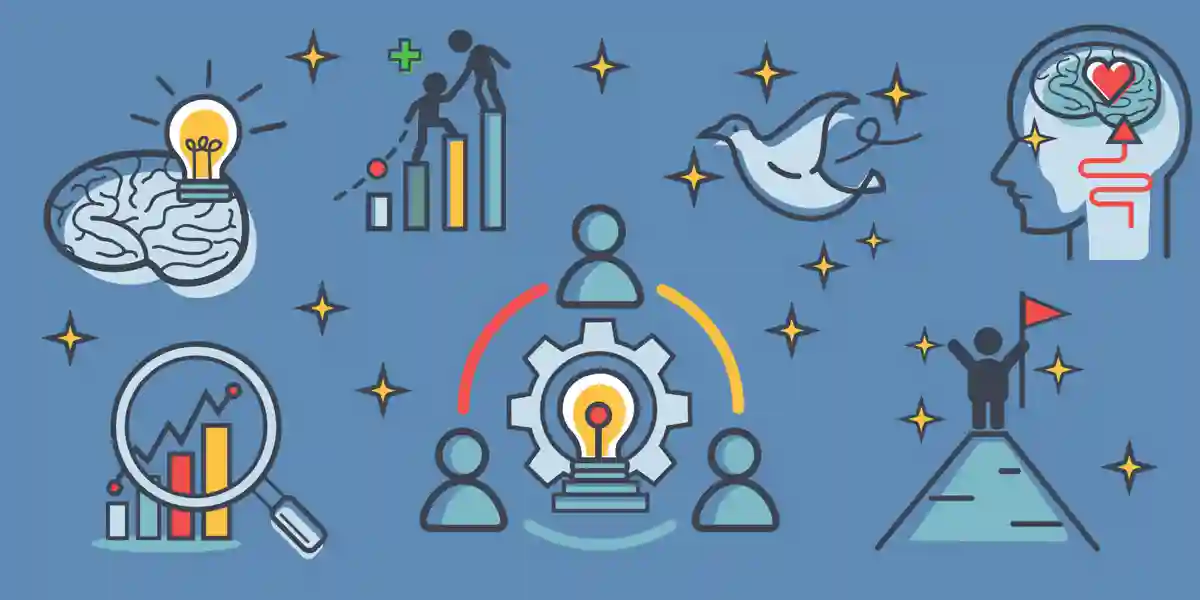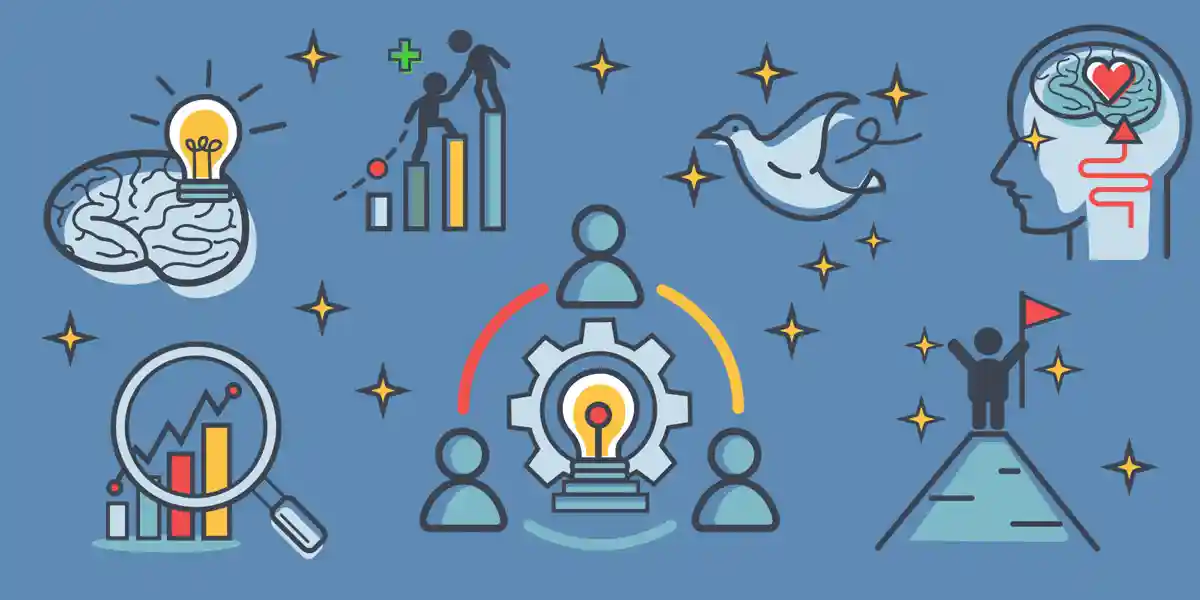Coaching is a hot topic these days, and it's no wonder, given the pace of change. To be agile and adapt quickly, we often need help making the turn. That's why you'll hear so much about creating a "coaching culture." Companies want to create an environment where people can constantly coach one another for optimal performance. But there are many types of coaching in the workplace to consider, and they are not all equal.
Let’s talk about the different forms of workplace coaching and their value:

1. Humanist Coaching
Humanist coaching is focused on helping leaders reach their full potential. You've probably heard the term self-actualization and that's what this one is all about. It relies heavily on the relationship and trust between leaders and coaches to create success for the leader.
Humanist coaching takes on a therapy-oriented perspective in which the leader being coached may already be in the midst of crisis and the coach helps the leader find stability and confidence. While this is great for the leader, it doesn't necessarily help them get more done for the organization.
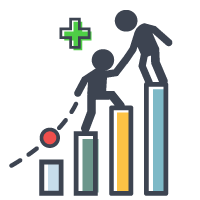
2. Adult Development Coaching
Adult development coaching focuses on the different stages of adult development. The coach must determine where the leader is in their development and help the leader to move toward a more mature understanding of authority and responsibility as well as a greater tolerance for ambiguity.
This is a therapeutic coaching strategy centered on the experiences of each stage of adult development. When you think specifically about types of coaching in the workplace, this coaching approach doesn't scream, "I'm getting more stuff done!"
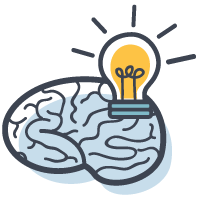
3. Cognitive Coaching
Cognitive coaching addresses the maladaptive thoughts that can get in the way of a leader’s success. This therapeutic approach to coaching requires a coach to challenge the way the leader thinks about the actions of others in nonproductive ways, hindering their own performance. This approach definitely has its place at the right time for the right leader, but it doesn't address holistic behavior change.
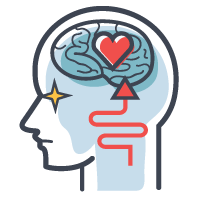
4. Positive Psychology Model for Coaching
The positive psychology model for coaching has surged in popularity over the last few years. This strengths-based approach requires a coach to help the leader expand existing strengths to build positive emotions, creating greater happiness, and in the process, higher levels of performance.
While it can sometimes be used to achieve specific goals, this approach is primarily designed to change perceptions and attitudes in a more positive direction.
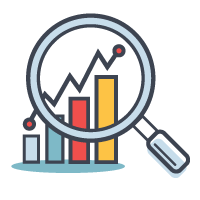
5. Systemic Coaching
Systemic coaching, as the name implies, takes into account a wide range of factors that impact performance. It focuses on looking at patterns that may impede a leader’s performance and seeks to disrupt them. It also highlights the importance of making small changes that can add up to big results over time. This approach is consistent with much of the writing you may have seen recently.
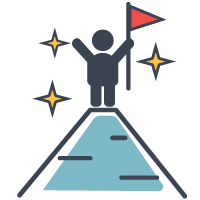
6. Goal-Oriented Coaching
Goal-oriented coaching is probably the type of coaching in the workplace many of us are most familiar with. It's about helping leaders regulate and direct their interpersonal and personal resources to better attain goals. The primary method is to help the leader form well-crafted goals and develop an effective action plan.
Combining the Best From These Approaches
Each of these types of coaching varies in terms of how directive, solution-focused, and dependent they are on the relationship that is established between the coach and the leader. And while each approach has shown some level of effectiveness, the value that's delivered to the leader by the coach can certainly be improved upon for each of them.
That's where a new coaching style comes in, one that takes the best from each approach and creates something more attuned to the challenges of today's leaders. Enter adaptive coaching.
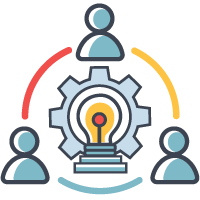
7. Adaptive Coaching
Adaptive coaching is fundamentally goal-oriented in nature. However, it also incorporates the best aspects of approaches like systemic, positive, and even cognitive coaching. It balances the personal and practical needs of the person being coached.
An example of this style is DDI’s ACE coaching model. The goal of adaptive coaching is to understand the context of the leader being coached as much as possible, in a short period of time, to help them to achieve tangible results.
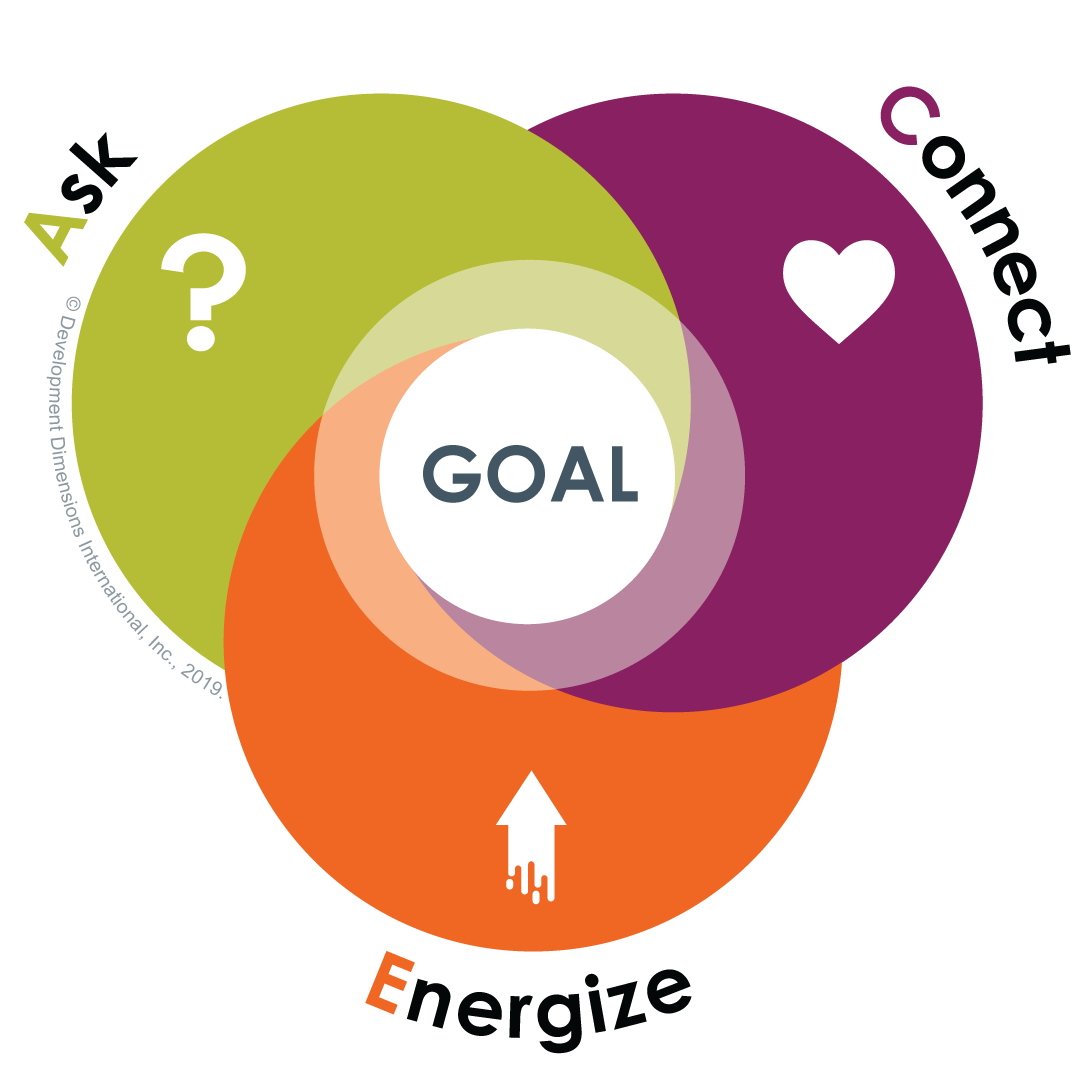
In contrast to several types of coaching described above, the objective is not to create a long-term coaching relationship. Rather, adaptive coaching focuses on determining what is happening in the leader's business (e.g., what project they are focused on currently), what challenges exist for the leader in their role as a result (e.g., the people dynamics), and how a deeper understanding of the leader’s personal patterns that drive and derail them can help to overcome those challenges. It uses a current challenge a leader is facing to determine the best course of action a coach can take to support a leader.
Adaptive coaching starts with understanding the details of the current situation and tasks involved, but before getting focused on coaching to these tasks, it enables the coach to collaboratively create clarity on the situation and explore options.
This method also focuses on quickly establishing trust between the coach and the leader and emphasizing how the leader’s strengths can be used to drive a solution. Research tells us that this approach creates more energy for trying new things. At the same time, the coach provides the leader with support and resources to shore up development areas and create the confidence needed to explore uncharted waters.
An Example of Adaptive Coaching
As a leader focuses on overcoming a challenge with the support of a coach, they simultaneously develop skills that will serve them well over the long term. The coach provides leaders with exactly what they need in the moment. This comes in the form of learning resources and tools, self-insight, and supported action that the leader can take toward overcoming the current challenge.
Here's an example of how this works:
Morgan has been recently promoted to a manager role. One of the members of Morgan's new team is especially talented in a technical area but doesn't collaborate well with the rest of the team and is even a bit snarky. It's a tight labor market and Morgan doesn't want to lose the talented team member by giving him tough feedback, but this behavior could put other team members at risk of leaving. This challenge has a direct impact on the team's performance.
Applying adaptive coaching, the coach can help Morgan quickly take stock. What is at risk if the team isn't successful on the current project? What is her relationship with the snarky team member? What concerns does she have about how to approach a discussion with the snarky team member?
The answers to these questions can form the foundation for a series of actions. Since Morgan is great at quickly establishing rapport with people and connecting, her coach may recommend using that strength to help her deepen relationships with her team members.
Coaching Provides Opportunities to Practice Key Skills
Because of Morgan's focus on relationships, she can sometimes be conflict adverse, and she doesn’t have a lot of experience giving feedback for improvement. So the coach provides her with opportunities to practice giving this type of feedback and gives her a discussion planner to help her think through the first conversation with the troubled team member.
Morgan debriefs with the coach after the first conversation with the team member.
She reveals that the first meeting wasn't a success, but it was progress. The coach can then help Morgan think about how to adjust the strategy, provide additional resources, and gain her commitment to try again. With each subsequent discussion, Morgan learns more about herself and how the best leaders handle these kinds of situations. Not only is the coach helping Morgan solve an immediate challenge, but Morgan is learning a new skill that will serve her well as she grows as a leader.
As this example shows, using adaptive coaching might be a new way of thinking about coaching in the workplace, but it stands on the shoulders of some great pioneers in the coaching field.
By taking this holistic, leadership context-based approach, we can help leaders be successful now, while at the same time continue to grow them into the top-performing leaders of the future.
Learn more about creating a coaching culture.
Ryan Heinl is Director of Product Management and Leader of DDI’s Innovation Lab, where he brings innovative leadership solutions to life. He is an entrepreneur, writer, chef, CrossFitter, mindfulness junkie, and occasional yogi who travels the world in search of the perfect moment (and secretly hopes he won’t find it).
Topics covered in this blog
